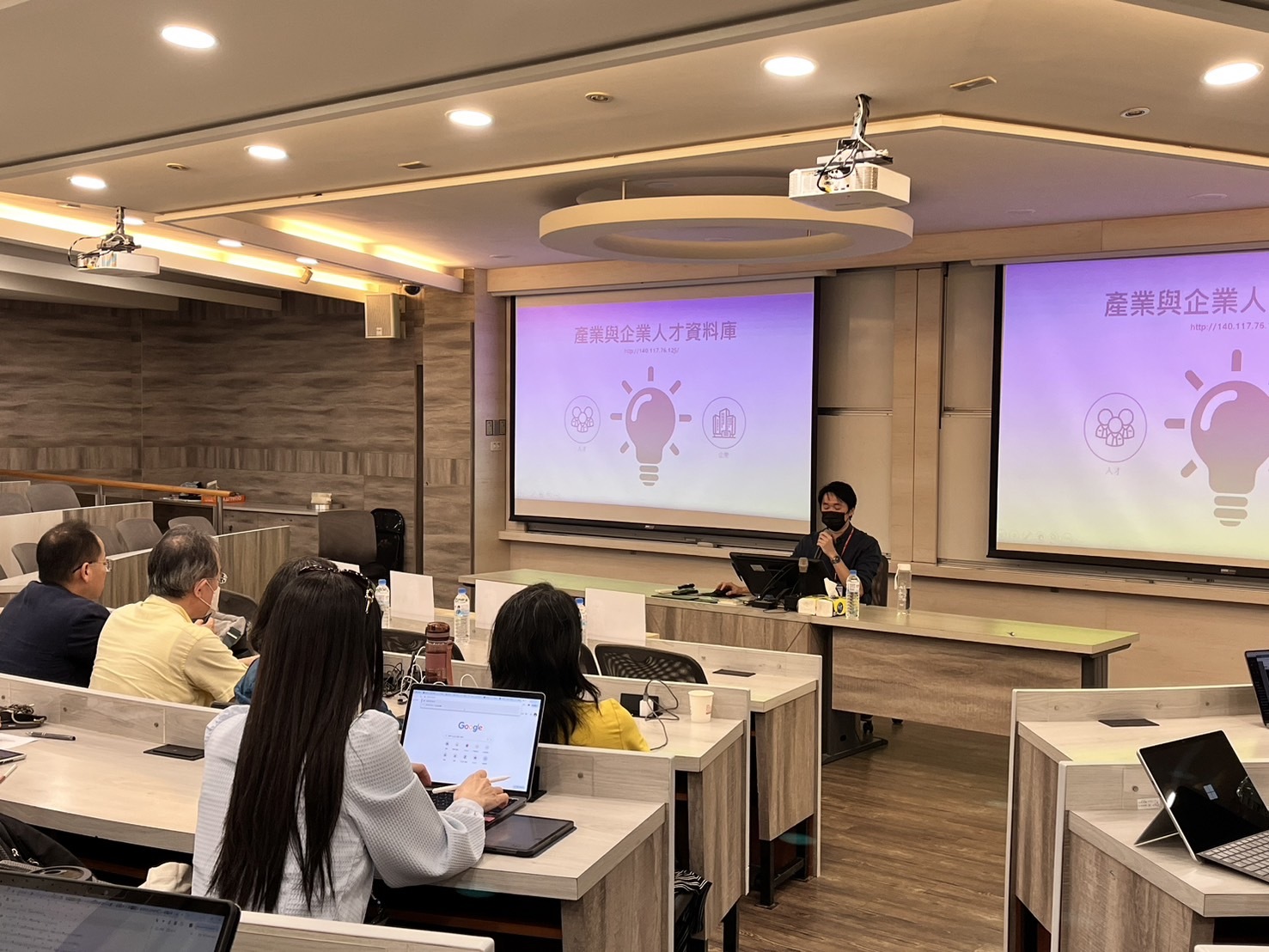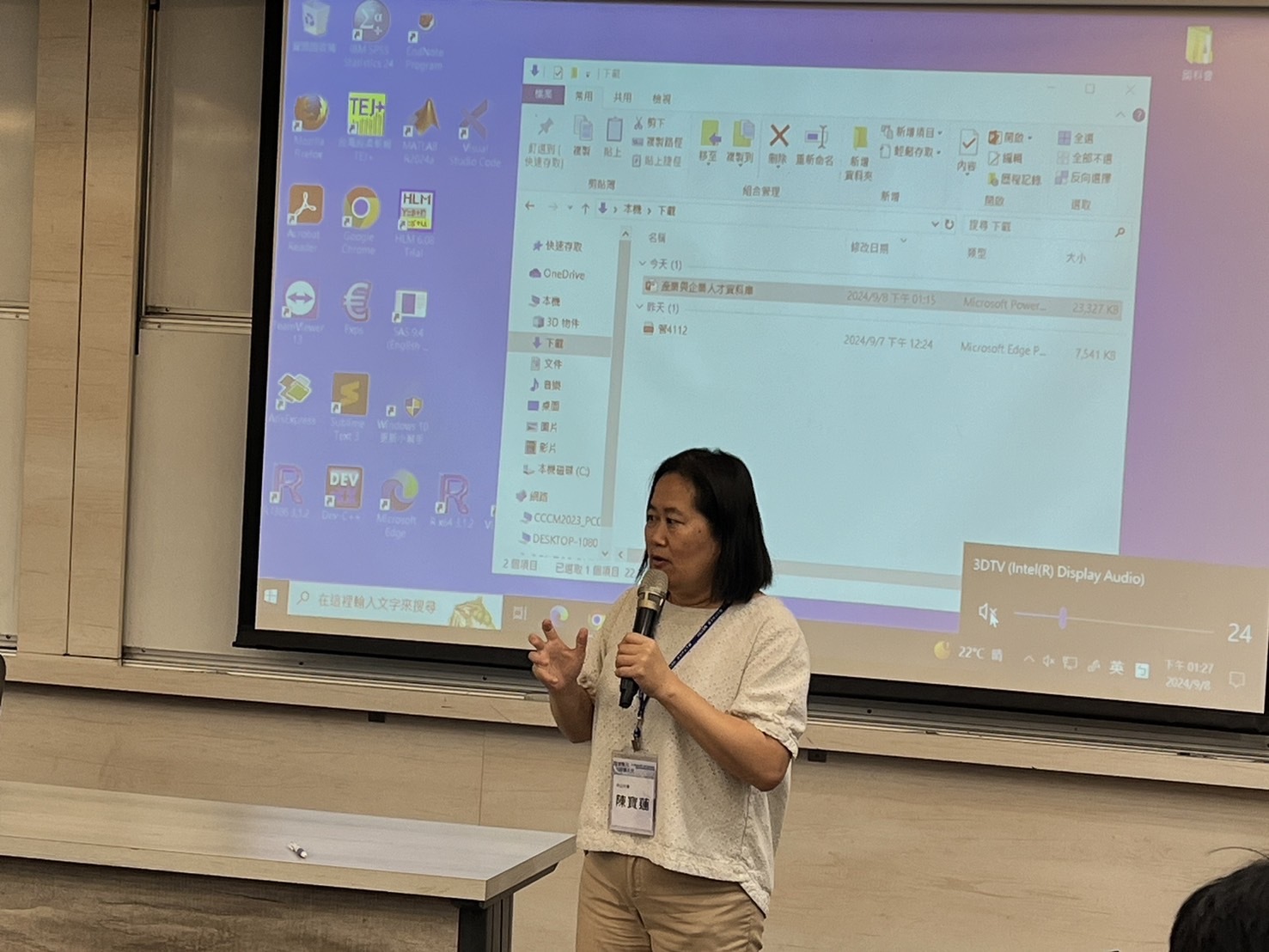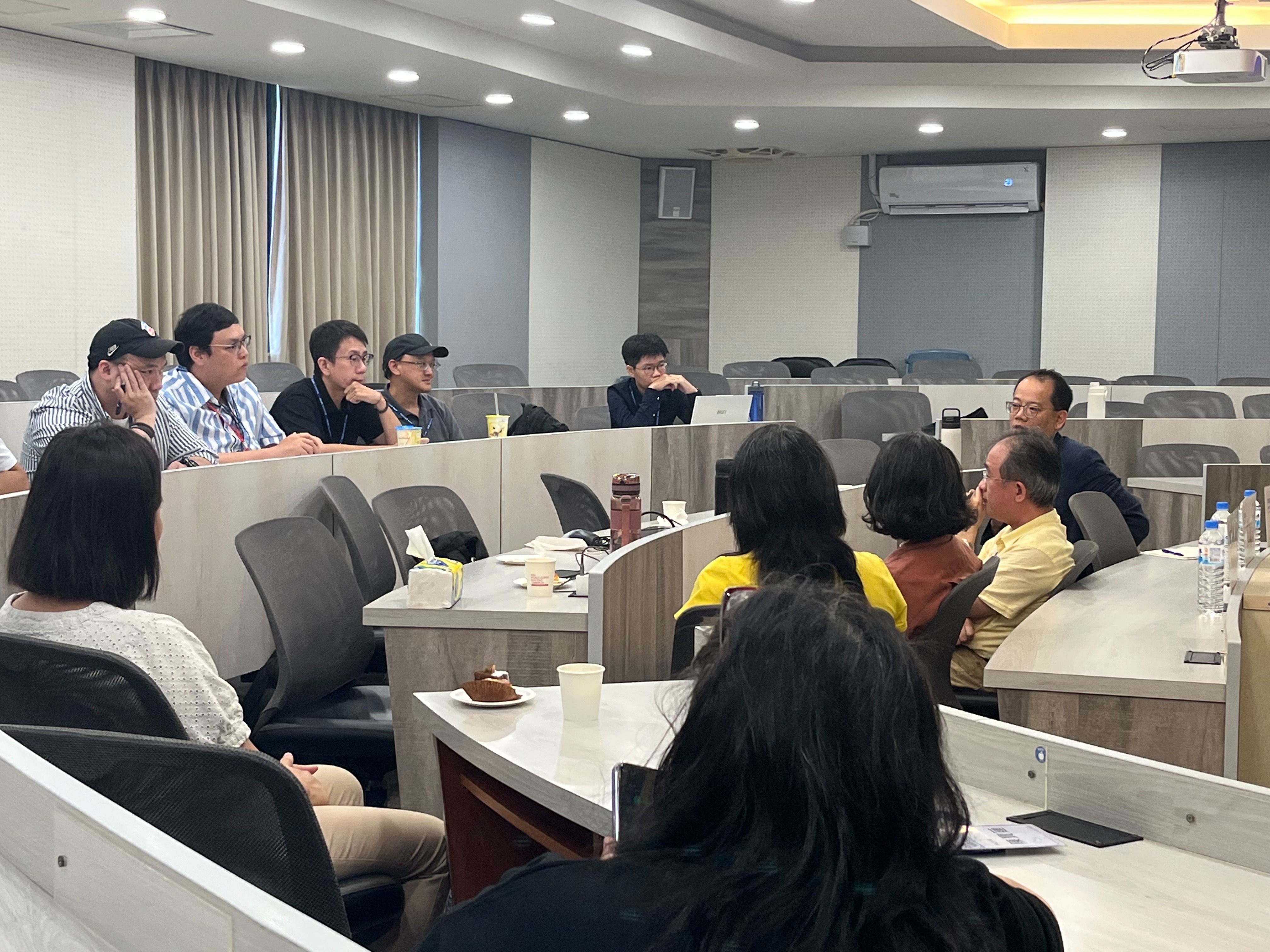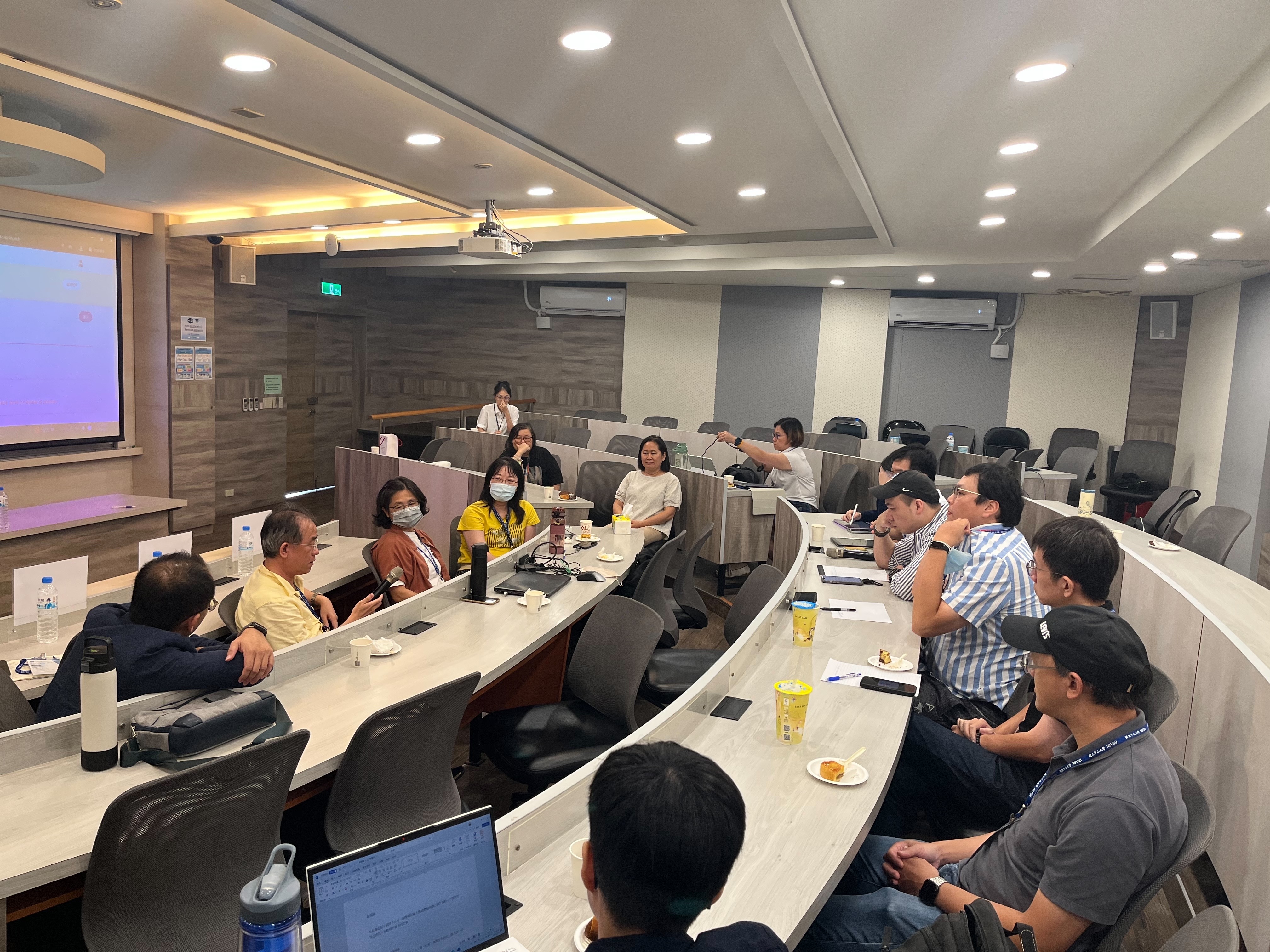Industry and Talent Database Hackathon & Interdisciplinary Research Collaboration Hackathon(2024/09/08)
2024/09/08
Industry and Talent Database Hackathon & Interdisciplinary Research Collaboration Hackathon
The conference, jointly organized by a discipline managed by the National Science and Technology Council (NSTC) and the Annual Meeting of the Taiwan Academy of Management (TAoM), was held on the afternoon of the second day (September 8, 2024). The event featured the “Industry and Talent Database Hackathon” and the “Interdisciplinary Research Collaboration Hackathon,” hosted by the “Center for Strategy and Human Capital Research” at National Sun Yat-sen University (NSYSU), where the first “Industry and Talent Database” was introduced.
🖊️🖊️🖊️
Session1: Industry and Talent Database Hackathon
First, the “Industry and Talent Database Hackathon,” chaired by Professor Shyh-Jer Chen from the Institute of Human Resource Management at NSYSU kicked off. Professor Chen introduced the purpose of the session to the attendees and explained the database developed by the “Center for Strategy and Human Capital Research,” which is available for scholars to register and use for free.
As the saying goes, "Every step leaves a trace," which is especially true in the digital age, where online footprints are increasingly visible. But what value can these traces offer? When scholars wish to deeply understand the development and current status of a company, they often need to gather data from various sources (such as government websites, public information platforms, or other databases) on aspects like industry type, founding date, management team, board members, ownership structure, and sustainability reports. This process is often time-consuming. To address this need, the “Industry and Talent Database,” which integrates data on tax registration, Ministry of Economic Affairs corporate registration, corporate finance and governance, patent, corporate ESG reports, and more, was developed. Notably, the database also includes information on labor law violations, pollution sources monitored by the Environmental Protection Administration, and court rulings, providing diversified data support for research. All data in the database comes from public sources provided by government agencies, so there are no concerns about personal data breaches. Through this platform, scholars can access the necessary research data in one place, significantly reducing the time and effort required to search across multiple sources.
During the hackathon, senior academics in attendance offered valuable suggestions for further optimizing and developing the database. They expressed hope for the integration of more data that aligns with academic research needs. For instance, Professor Chen-Wei Yang from the Department of Health-Business Administration at Fooyin University, an expert in technology management whose research spans healthcare institutions, noted that hospitals and clinics are also important research subjects, but the database currently lacks hospital-related data, which could be an area for future improvement.
With the enthusiastic discussion and suggestions from the attendees, the research presentation event concluded successfully. Looking ahead, as the database continues to expand and be updated, it is expected to provide broader and deeper data support for academic research in various fields, further driving innovation and progress in academia.
- Industry and Talent Database: [http://140.117.76.126/] (Free to use after registering with an academic email)
Session2: Interdisciplinary Research Collaboration Hackathon
After the database session, Professor Pao-Lien Chen from the Institute of Human Resource Management at NSYSU chaired the “Interdisciplinary Research Collaboration Hackathon.” Although there were not many participants, this allowed for more in-depth exchanges. Generally, a hackathon refers to an event where participants engage intensively in software development, entrepreneurial problem-solving, or business competitions within a short period, working together to solve problems or propose solutions. “We named this session a ‘hackathon’ with the hope of fostering dialogue among scholars from different fields, sparking new ideas or opportunities for collaboration,” explained by Professor Chen.
The session began with participants introducing themselves and sharing their areas of expertise and research interests. If others were interested in a particular topic, they could join the conversation at any time. Participants were also encouraged to raise questions about their research to seek advice from experts in different fields. For example, one participant expressed interest in studying small and medium-sized enterprises (SMEs), but noted that certain information may not be publicly available, making data collection incomplete. At this point, another attendee suggested that it might be worth exploring the Executive MBA (EMBA) programs at universities. Many SME owners in southern Taiwan enroll in EMBA programs to expand their networks, and if data from these business owners could be collected regularly, it might be possible to gradually build a database specific to Taiwanese SMEs.
This session attracted scholars from various universities across northern, central, and southern Taiwan, as well as from the universities and university of science and technology systems. Participants included assistant professors, associate professors, full professors, doctoral students, and postdoctoral researchers. Their backgrounds were diverse, covering fields such as technology management, innovation management, sustainable development, organizational behavior, and strategy. Through this interdisciplinary exchange, participants were able to share their research experiences. Professor Chen shared, “This is our first time organizing such an event, so we are still exploring the best format. We hope to create a platform for researchers from different fields in Taiwan to exchange ideas, ultimately facilitating interdisciplinary research topics.”
As the hackathon concluded successfully, participants were filled with anticipation for future interdisciplinary collaborations and expressed hope that such events would continue to develop, fostering more innovative academic outcomes.
Photo Highlights





